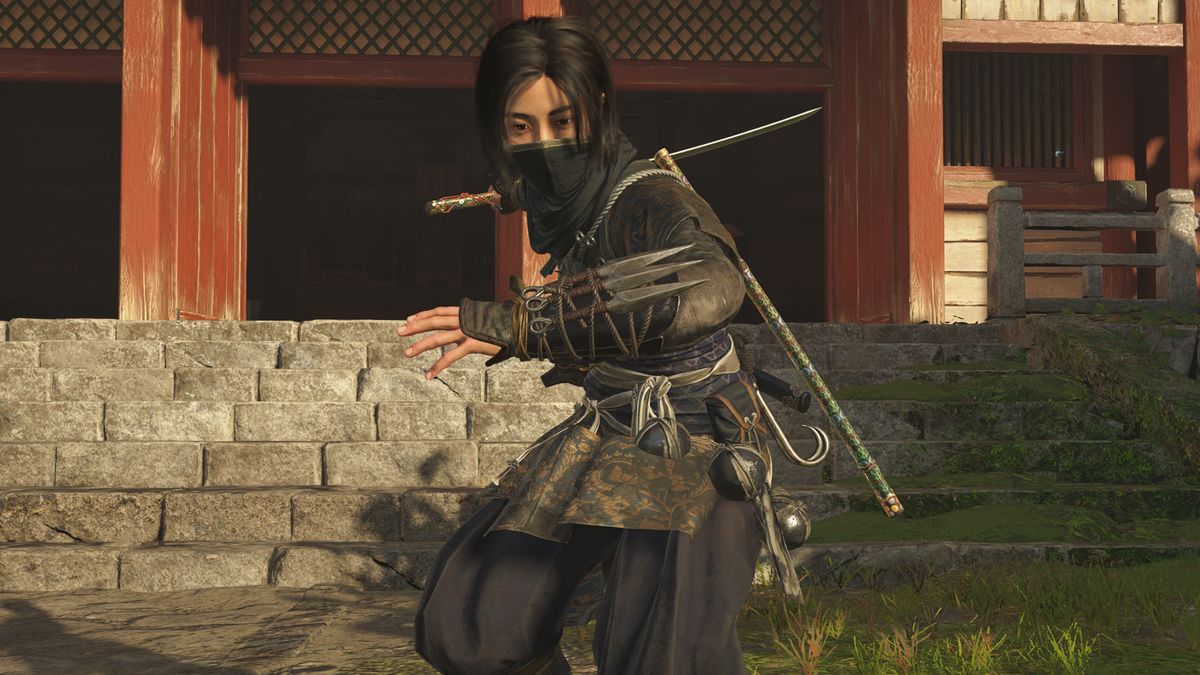It’s no secret that Assassin’s Creed has been stuck in a bit of a rut for a while. While the series’ use of wildly different historical time periods helps add a lot of variety, it’s struggled to marry its many disparate systems in a cohesive way. Assassin’s Creed Valhalla makes this more obvious than ever with a wealth of issues, chief of which are a bloated open world and meandering story. That’s exactly what makes Assassin’s Creed Shadows such a pleasant surprise—it feels like a complete course correction.
While there are still some frustrating issues that continue to plague the series, it feels like Shadows might have stumbled onto a winning formula that could carry the series forward—a true fusion of the newer RPG games and the classic Assassin’s Creed formula.
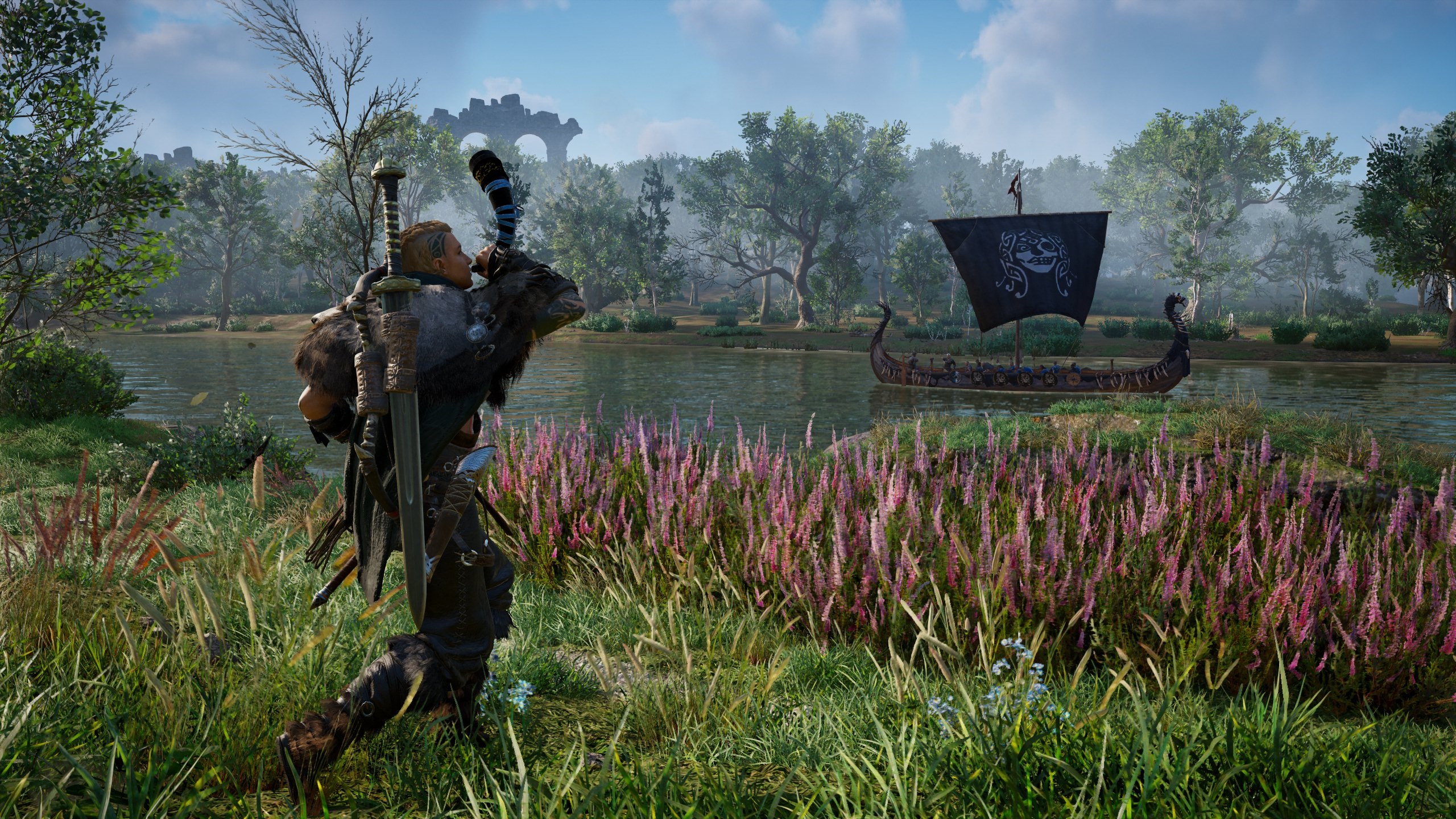
(Image credit: Ubisoft)
The 2017 release of Assassin’s Creed Origins changed the series’ entire trajectory, and that new RPG formula has been iterated on ever since. But Valhalla, arguably, took that formula too far, and became too gratuitous in trying to be an expansive open-world RPG, shunting sneaky, assassin shenanigans off to the side.
Valhalla’s real downfall is that it’s simply trying to do too much, it’s butter spread too thin over a piece of toast. It’s a decades-spanning Viking epic; a free-form open world full of icons, activities and things to collect; an action RPG with the vestiges of a stealth system; and then there’s the sections where you’re not even playing Eivor.
It’s easy to feel overwhelmed—the dozens of icons and color-coded spheres on your map, the intricate web of hundreds of abilities, and the meandering plot lines that feel like five seasons of a TV show crammed into a game.
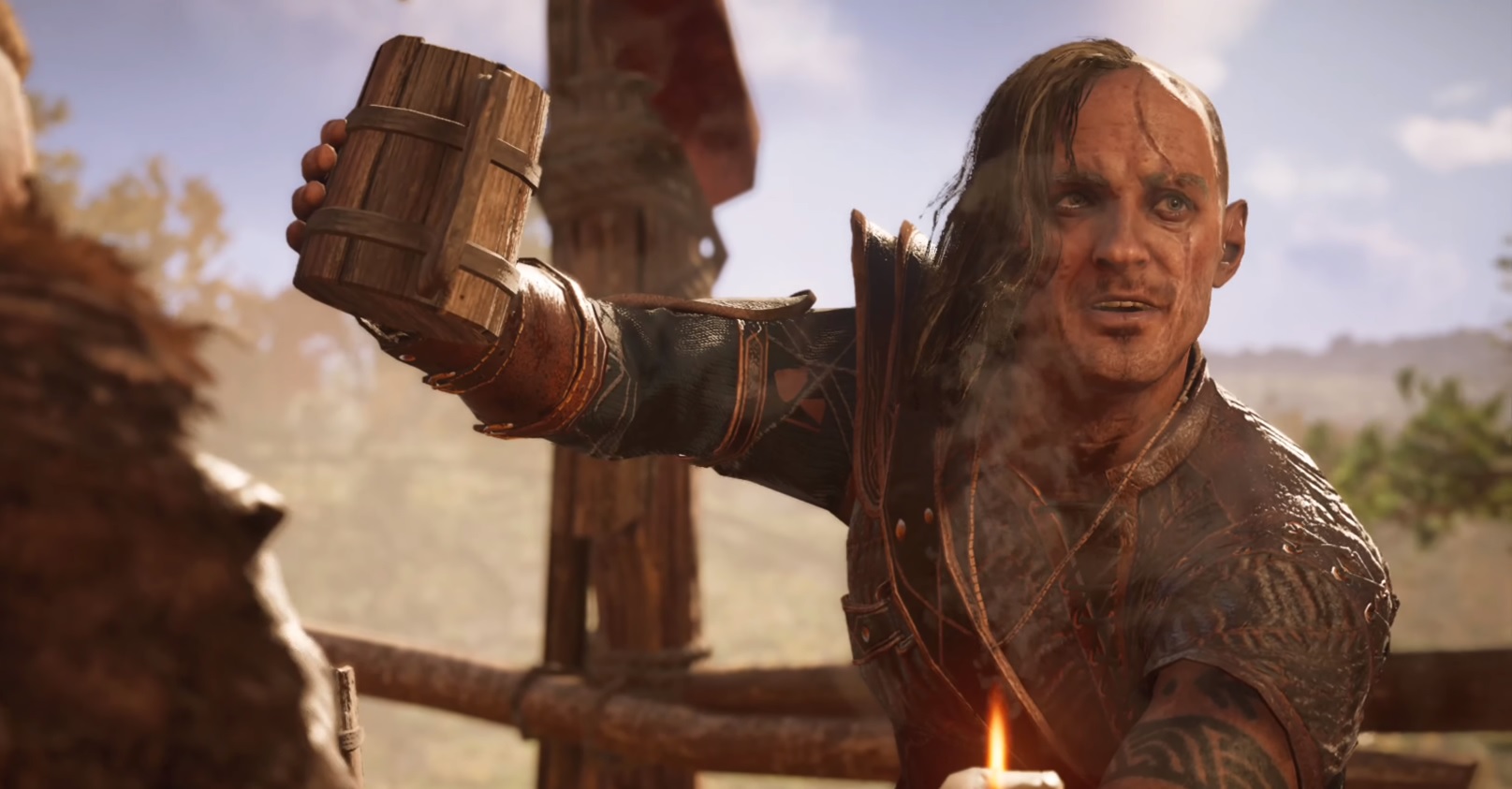
(Image credit: Ubisoft)
More often than not these activities and stories don’t feel like they’re contributing to the core narrative. They feel separate, and unfortunately because of that, like a waste of time. By trying to maximize all of the RPG elements of Origins and Odyssey, Valhalla ended up feeling unfocused and scattered, and that’s a real shame considering there’s some strong story moments near the end—it’s just the 100 hours to get there don’t feel worth it.
Coming into Shadows, that created a major question: would Assassin’s Creed continue down the RPG path or go back to basics? The answer’s a bit complicated, and while Shadows doesn’t fix all of the problems that have been there in the past few games, it provides a blueprint for how the series can, and should, evolve.
Shadows feels like it directly addresses that unconnected feeling of Valhalla—there’s a deliberateness behind Shadows that gives it an edge. Exploration activities like shrines give you knowledge points to unlock more skills. Side quests can lead to new allies joining your forces, hints to uncover assassination targets, resources to expand your base. Shadows focuses on a core set of ideas and mechanics, and makes sure to expand everything out of those handful of concepts. This even applies to the combat itself.
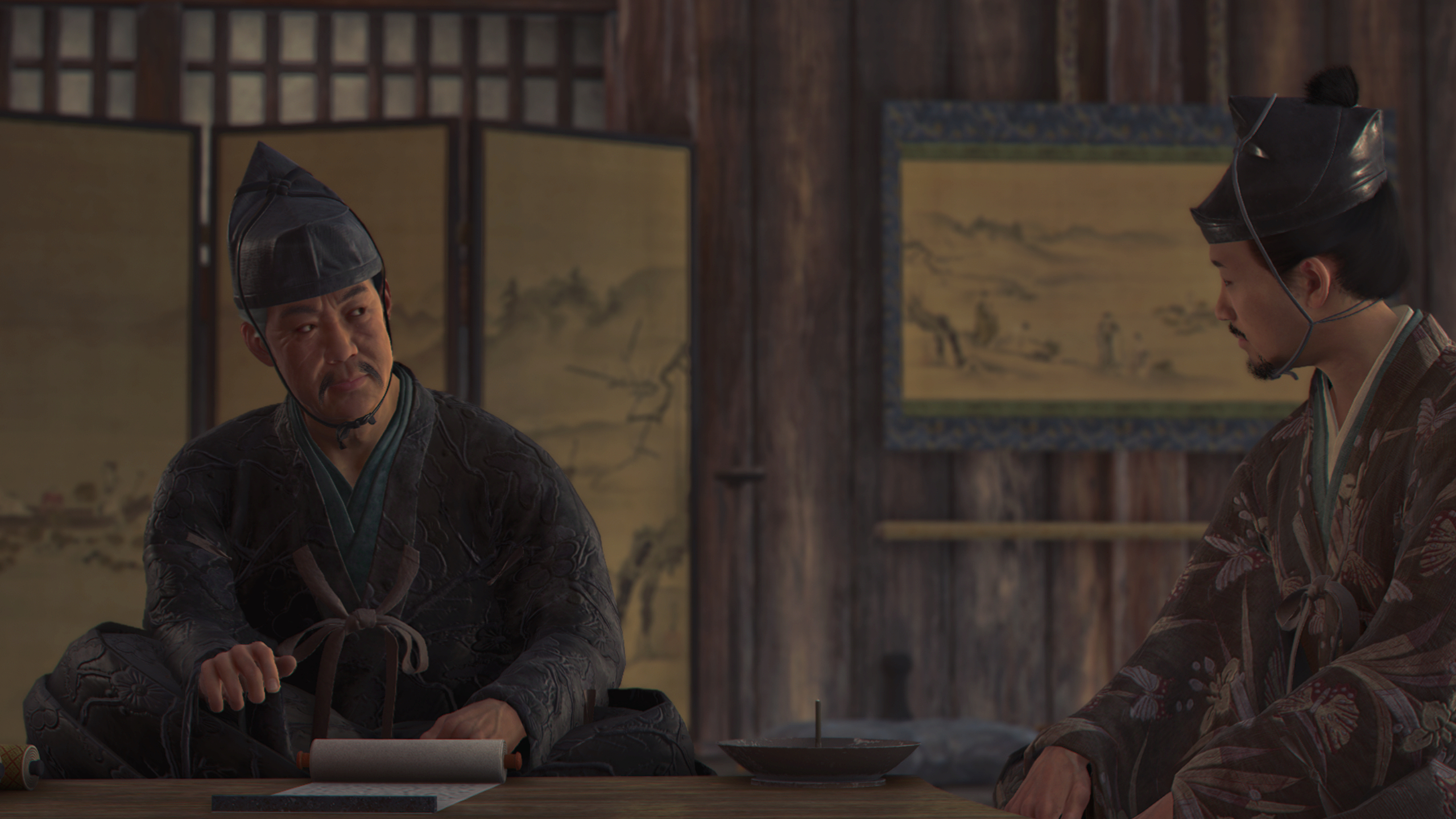
(Image credit: Ubisoft)
In Valhalla, there were dozens of abilities you could unlock, and upgrades to strengthen those abilities—but you had to find hidden books to do so. But in Shadows those ideas are streamlined. Most abilities specifically apply to particular weapons, meaning you can sink ability points into the murderous tools you enjoy using the most. But the use of knowledge points means you can have a more satisfying progression by simply exploring the world and engaging in its activities as you come across them. You don’t need to seek out specific objects to unlock abilities, and smaller skill trees mean you won’t get locked out of some upgrade because you’ve only been investing in one side of the network of skills.
Even the way the story plays out feels more thoughtful—a clear expansion of ideas that were introduced in Assassin’s Creed Mirage.
Even the way the story plays out feels more thoughtful—a clear expansion of ideas that were introduced in Assassin’s Creed Mirage. Instead of the normal quest log you have a network of character icons, laying out a clear map of who’s involved in this story and what their role is.
Quests are then attached to these portraits, letting you select quests by who’s involved—whether that’s an ally you want to help, or a member of the shadowy organization you’re hunting down. These assassinations take you to the various regions of Shadow’s feudal Japan, creating a sense of the main story progressing while you uncover more of the world. You can tangibly feel the narrative progression accompanying the exploration.
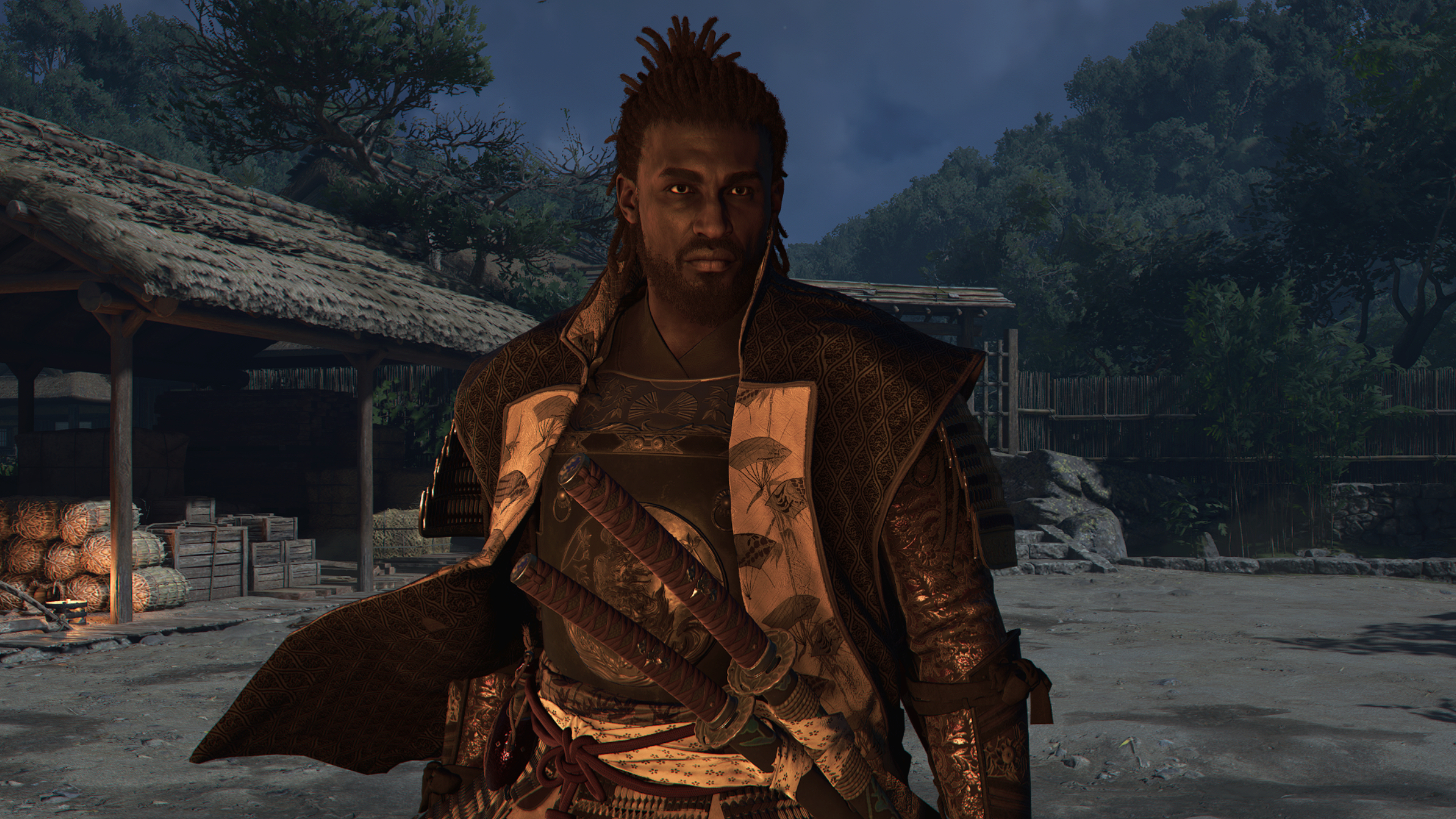
(Image credit: Ubisoft)
Even the likes of Origins and Odyssey struggled to keep that sense of momentum up—those games had all these interesting systems and assassination targets, but they didn’t feel intrinsically linked to that main experience. They were simply side objectives, plain and simple.
While it’s a clear step in the right direction, there’s still a handful of troublesome elements that Shadows can’t seem to drop. An explosive opening hour moves into a surprisingly slow Act 1—with one of the game’s dual protagonists, Yasuke, not even appearing again for nearly six hours. It’s a bizarre choice that halts the momentum set up by the opening, and a lot of those compelling exploration elements, and the variety offered by two characters, don’t become apparent until you’ve played quite a bit of the game. It feels like a hump you have to get over, in order to get to the good stuff.
While Valhalla’s scattershot approach was detrimental, games of this scale still need a lot of variety to justify their immense size, they just need to be cohesive. Shadows has that cohesion, but it can also feel repetitive. The map is, once again, vast, and Ubisoft just hasn’t created enough distinct diversions to fill it. Rhythm minigames and optional treasures break up the flow at first, but after you’ve done those a dozen times across 60 hours, it doesn’t feel fresh anymore.
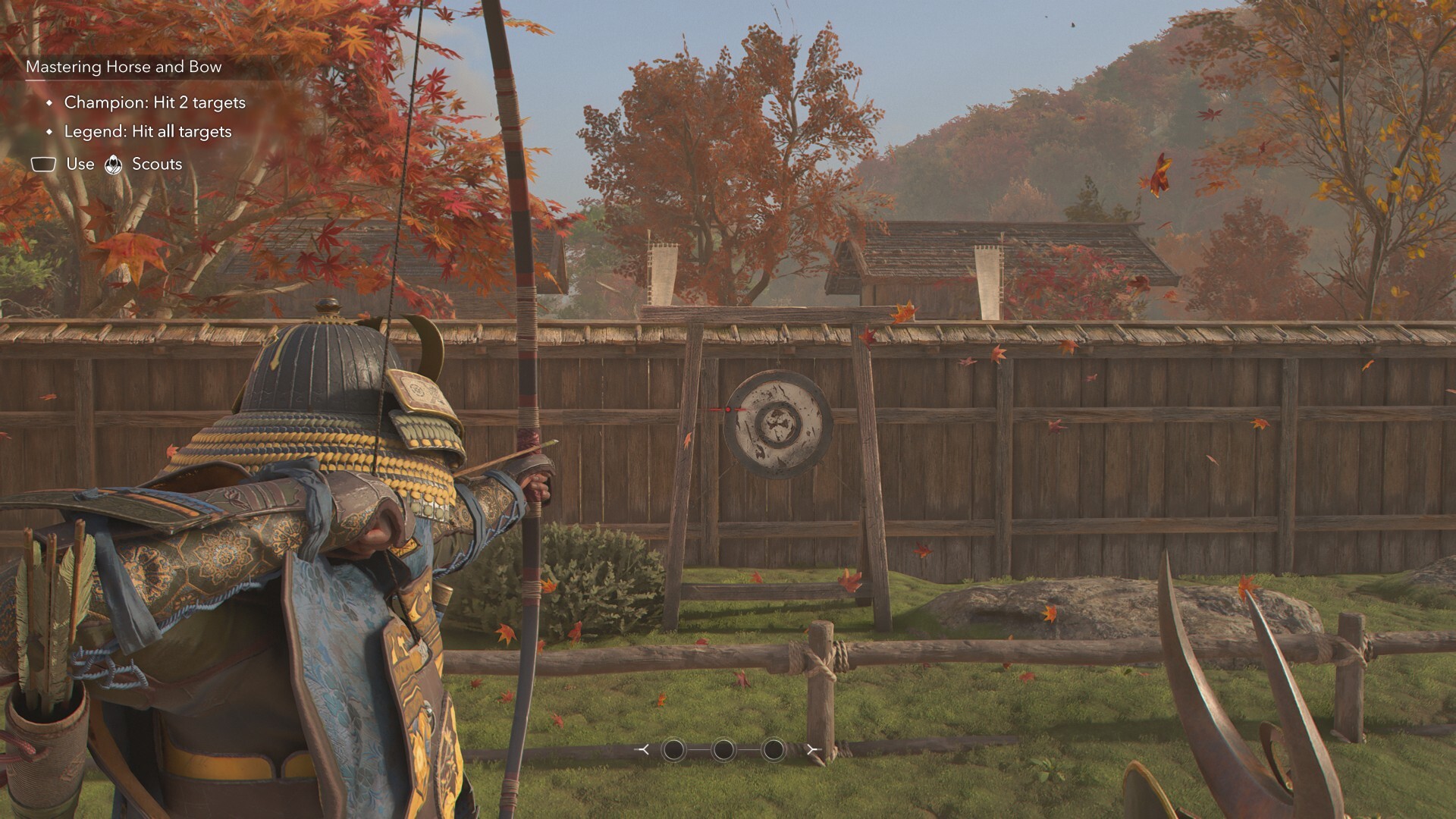
(Image credit: Ubisoft)
Instead of doing the exact same thing in a dozen locations, there could be variation layered into each one—whether that’s in the form of more narrative context, or slightly different gameplay mechanics.
The same can be said for Shadow’s approach to assassination. There’s a ton of targets to take down, but the formula, over and over, is infiltrate a castle and take the target down, either with strength as Yasuke or stealth as Naoe. The two playable characters should add variety to these hunts, but it pales in comparison to the black box design of assassination missions in previous games. The foundations of a new formula is there in Shadows, but it could be drastically improved upon with more hand-designed assassination missions that have unique settings, mechanics, or objectives.
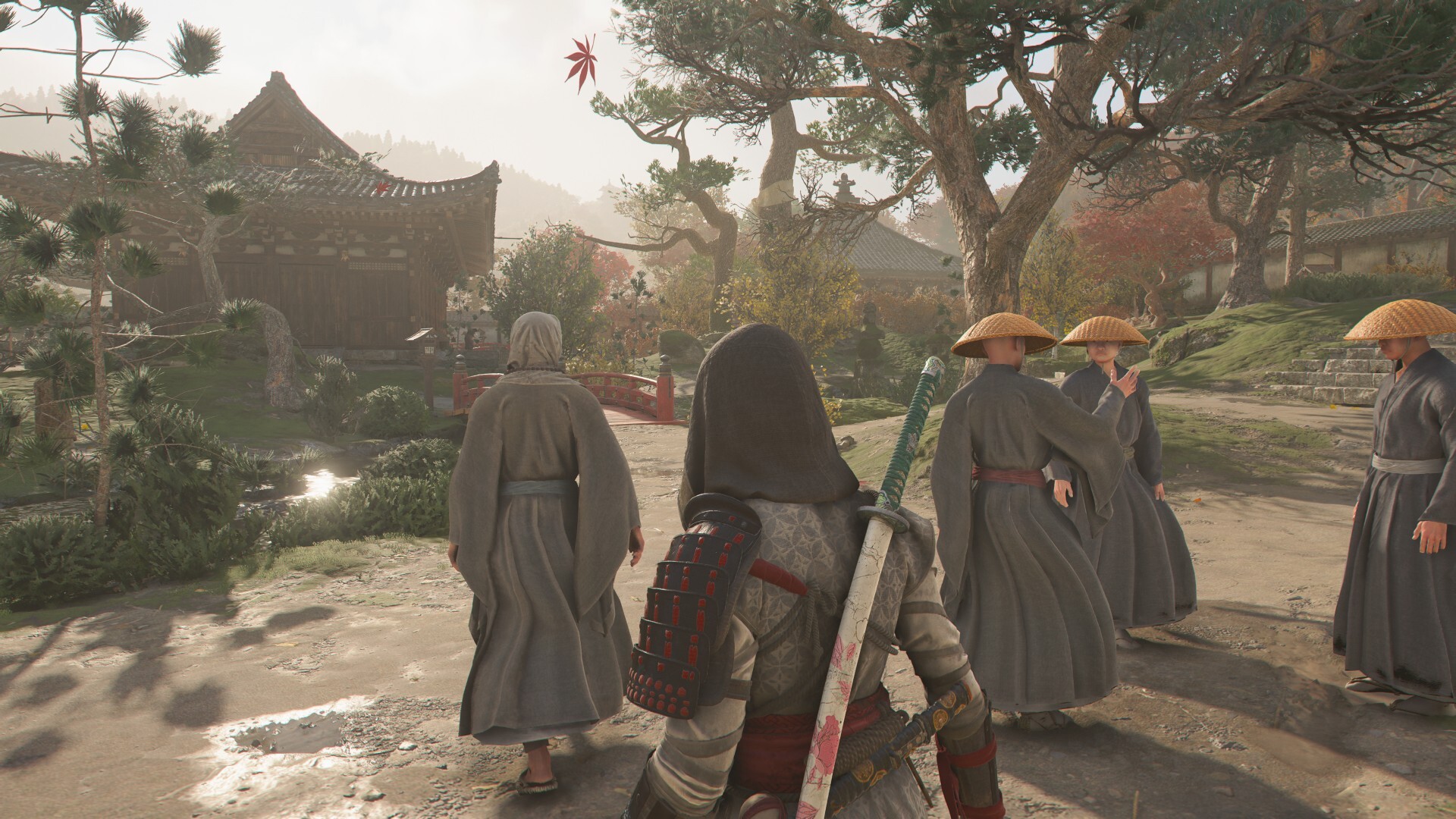
(Image credit: Ubisoft)
Shadows drastically improves the problems of Valhalla by making its world and activities feel more united and relevant to each other, but rather than finding perfection, it feels like this is the starting point of something that needs to be refined moving forward.
Assassin’s Creed Shadows doesn’t redefine the franchise like some may have wanted, but it does feel like Ubisoft is trying to find a middle ground that can appeal to both camps of players. Valhalla veered too far into RPG territory, and Assassin’s Creed Mirage went back to basics to middling results. This time, Ubisoft has tried to keep the issues inherent in both games in mind, and while it still has issues, it finally feels like Assassin’s Creed knows what it wants to be again.
From PCGamer latest via this RSS feed


